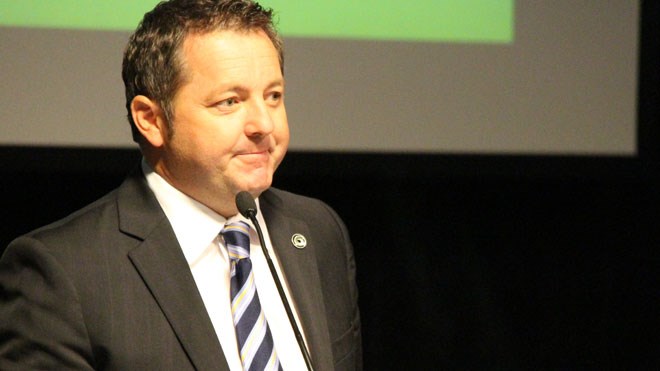For the seventh straight year, the North East Community Care Access Centre (CCAC) presented a balanced budget at its annual general meeting.
But the past year hasn't been without its challenges for the health care provider.
“I think doing more with less is the new normal,” said Richard Joly, the North East CCAC's CEO.
In December, doing more with less was tested to its limits when personal support workers with Red Cross Care Partners went on strike to protest their compensation.
At that time, the starting wage for a personal support worker with the company was $14.17 an hour. After 6,000 hours of work experience they reach the highest wage within the company — $15.02 an hour.
To continue providing care for its patients, Joly said he had to make some difficult decisions.
“We serviced the most complex patients,” he said. “There were some people that didn't receive services but they were not the most vulnerable and complex patients.”
Anyone not on strike worked extra hours to meet the care demands for elderly patients.
Even without work action, said Joly, the North East CCAC's role in the health care system is set to increase as the population ages and baby boomers demand more home care.
Providing more home care also makes economic sense.
Dr. Peter Zalan, president of the medical staff at Health Sciences North, was among several health professionals who participated in a panel discussion on home care at the annual general meeting. He said it costs around $42 per day to provide home care for an elderly patient, but closer to $800 a day to provide the same patient care in a hospital.
Nancy Jacko, vice-president of planning, partnership and professional practice at the North Bay Regional Health Centre, also participated. She said it is important to provide patients with the right care, at the right place and the right time, echoing the Liberal government's model for health care unveiled in 2013.
But for the health-care system to meet that goal, she said, it must have the resources necessary to help patients transition from on type of care – in hospital, for example – to another, such as the person's home.
Beyond resources though, better general health can go a long way to preventing problem that end up requiring home care, said Frankie Vitone, the North East CCAC's senior director of client services and another panel member. She said health-care practitioners need to focus more on prevention, and encourage people to eat well and exercise to avoid complications as they age.
In the 2013-2014 fiscal year, the North East CCAC assisted more than 2,100 people with palliative care.
The organization helped co-ordinate home care to 16,000 patients per day.
According to an independent survey, 94 per cent of patients were satisfied with the care they received from the North East CCAC.
But Joly, the organization's CEO, said his focus has been on the six per cent of patients who were not.
He said there is still work to be done to improve patients' transitions of care.
“We do provide good quality care with our personal support workers, our nurses, therapists and so on,” Joly said. “It's actually when we transition that the system has to do some work.”
